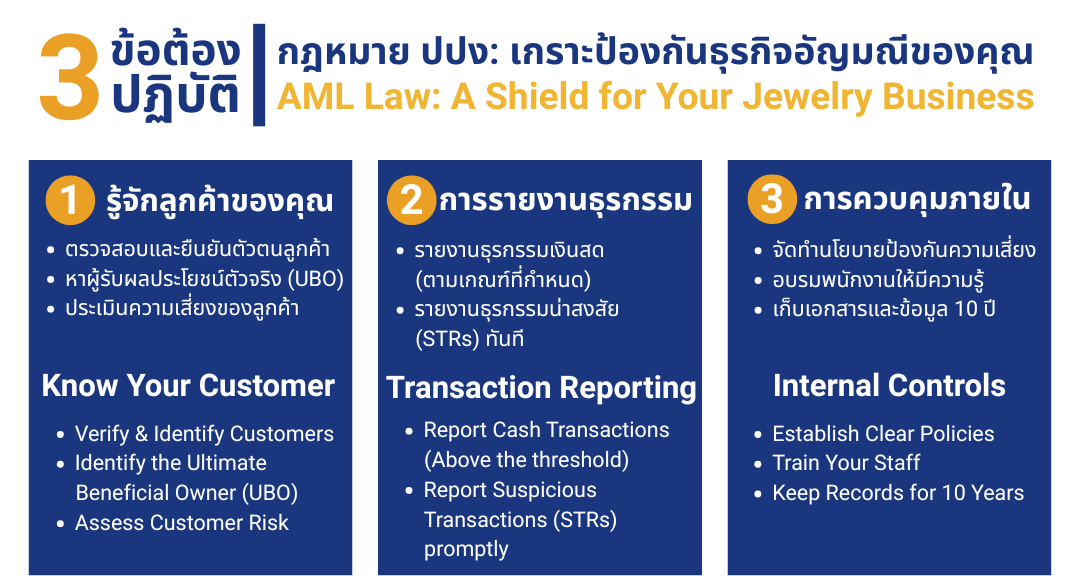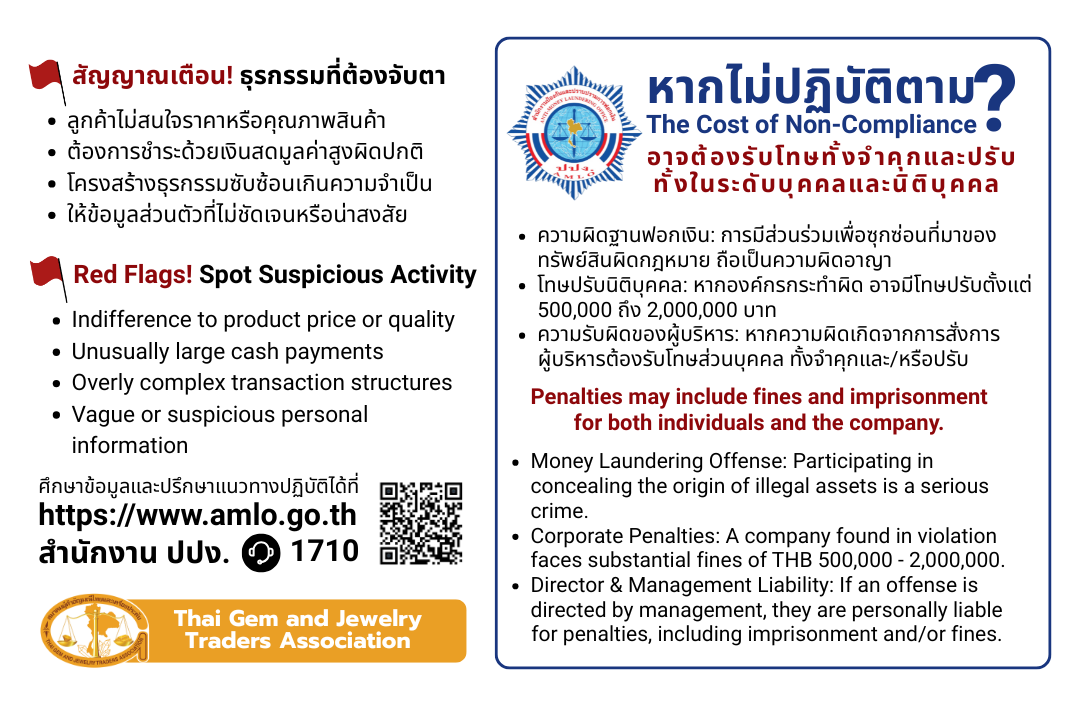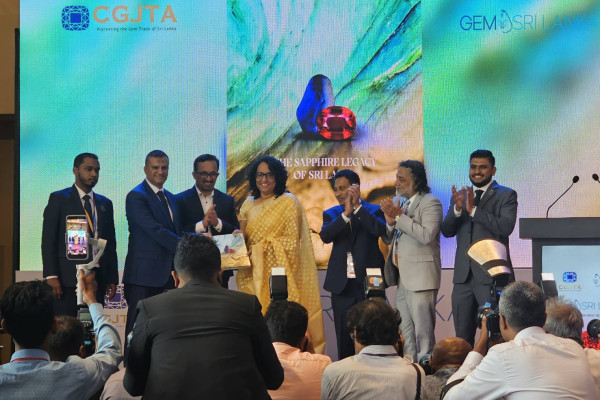

For entrepreneurs in the Thai gem and jewelry industry, understanding the Anti-Money Laundering Act, B.E. 2542 (AMLA) is more than a legal obligation—it's a shield that protects your business and fosters sustainable growth. This crucial legislation is designed to disrupt criminal financial networks and prevent legitimate businesses like yours from being exploited for money laundering or terrorist financing.
Given that the gem and jewelry trade often involves high-value cash transactions, strict compliance is essential to safeguarding your reputation and integrity.
Your business could unknowingly become a target for criminals seeking to "launder" illicit funds—money derived from illegal activities known as predicate offenses (e.g., fraud, smuggling, or illegal gambling). They may attempt to legitimize these funds by purchasing high-value assets like gems and jewelry. Adhering to the AMLA protects you from becoming an unwilling participant in such schemes.

Under the AMLA, gem and jewelry dealers are classified as "Reporting Entities" and have several key duties.
Customer Due Diligence (CDD), commonly known as Know Your Customer (KYC), is your first line of defense. You must identify and verify your clients before establishing a business relationship or conducting transactions.
Actionable Steps:
Collect and verify identity information, including the client's full name, date of birth, national ID/passport number, and address.
Refuse transactions with clients who wish to remain anonymous or use a pseudonym.
Identify and verify the Ultimate Beneficial Owner (UBO)—the real person who ultimately owns or controls the client, especially when dealing with corporate entities.
Conduct a risk assessment for each client to determine the appropriate level of scrutiny.
You are legally required to report specific types of transactions to Thailand's Anti-Money Laundering Office (AMLO).
Cash Transactions: Report any cash transaction that meets the monetary threshold specified by law.
Suspicious Transaction Reports (STRs): If you suspect a transaction may be related to a predicate offense, money laundering, or terrorist financing, you must file an STR with AMLO immediately.
Robust internal systems are critical for effective compliance.
Establish Internal Policies: Implement clear, written policies and internal controls for AML compliance that are appropriate for the size and risk profile of your business.
Conduct Staff Training: Regularly train relevant employees on their AML responsibilities, including KYC procedures and how to spot suspicious activity.
Maintain Records: Securely keep all records related to customer identification and transactions for 10 years from the end of the business relationship.

Failure to comply with the AMLA can result in severe penalties for both individuals and the company.
Money Laundering Offenses: Directly participating in transferring, receiving, or converting assets derived from predicate offenses to conceal their origin is a serious criminal offense.
Corporate Fines: A company found in violation can face substantial fines, ranging from THB 500,000 to THB 2,000,000.
Director & Management Liability: If an offense is committed at the direction of or due to the actions of a director, manager, or other responsible person, that individual may face personal liability, including imprisonment and/or fines.
Strict adherence to the AMLA is not just about avoiding penalties. It's about building a trustworthy, transparent business and contributing to the integrity of Thailand's world-renowned gem and jewelry industry.

A deep dive into the world’s most popular red gemstones—Ruby, Red Spinel, and high-value alternatives. Explore durability rankings and investment insights to ensure a worthwhile purchase from Thailand’s premier gemstone hub.

President of the Thai Gem and Jewelry Traders Association (TGJTA) attended Gem Sri Lanka 2026, an international gem and jewelry trade exhibition held in Colombo, Sri Lanka.